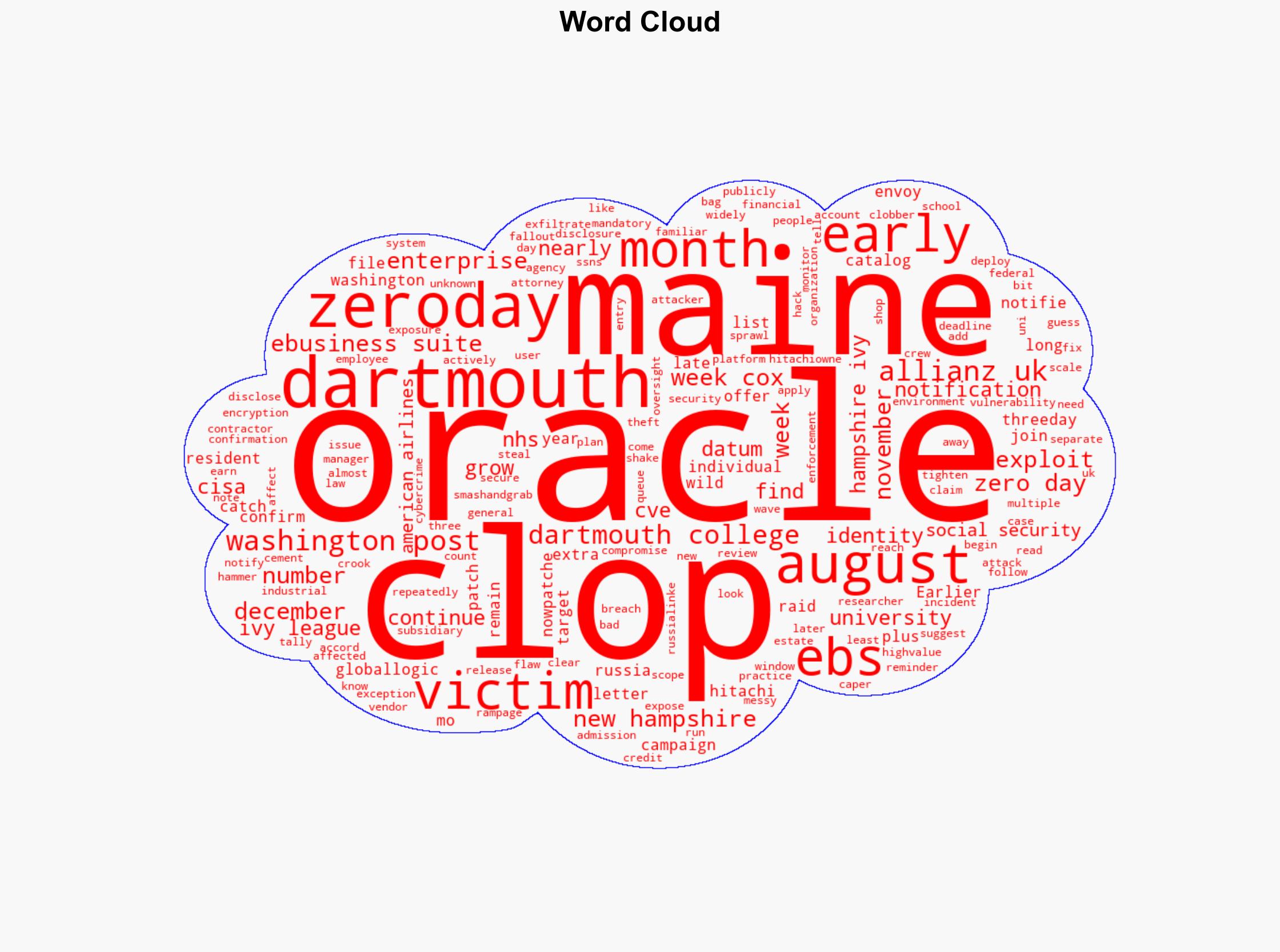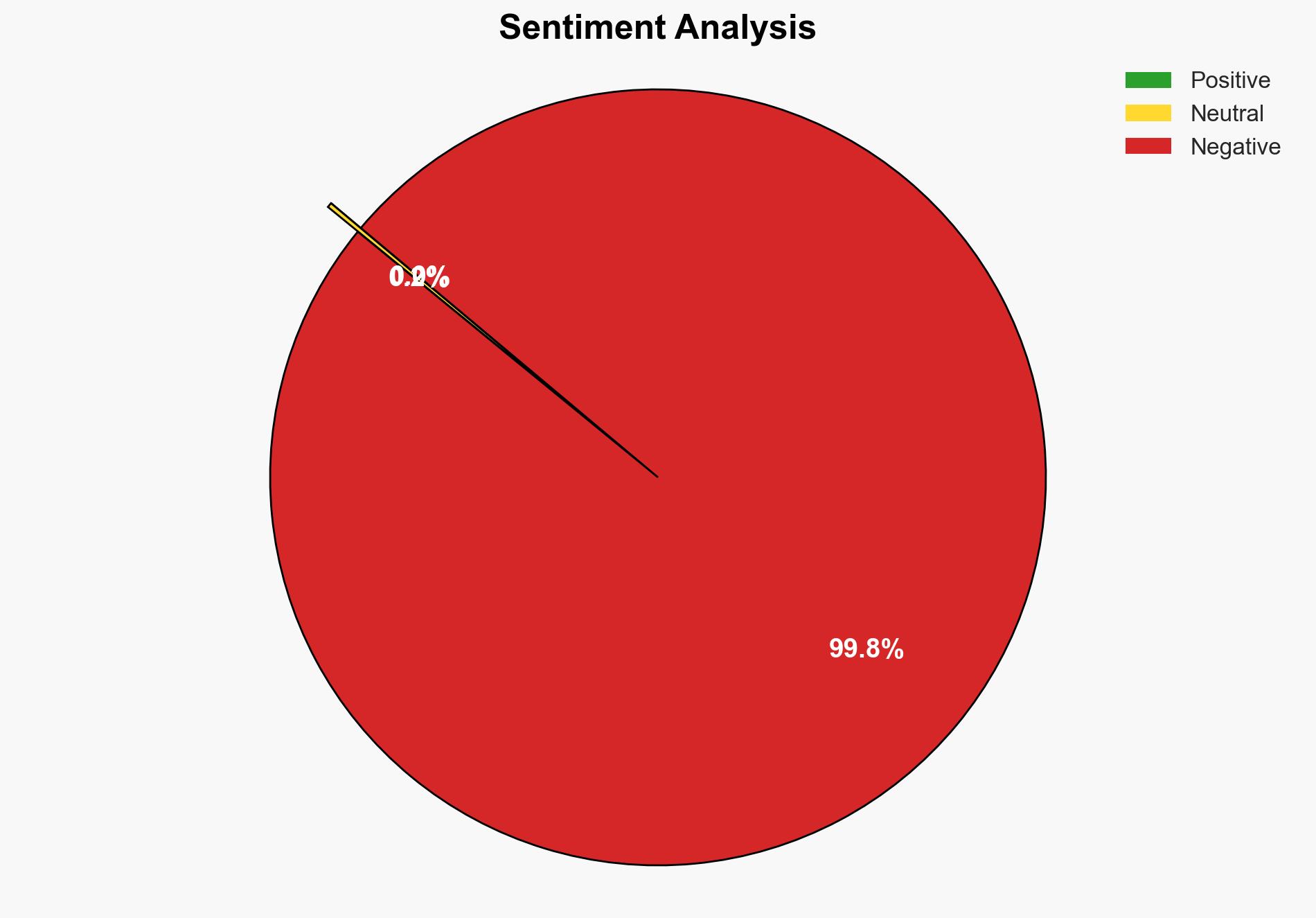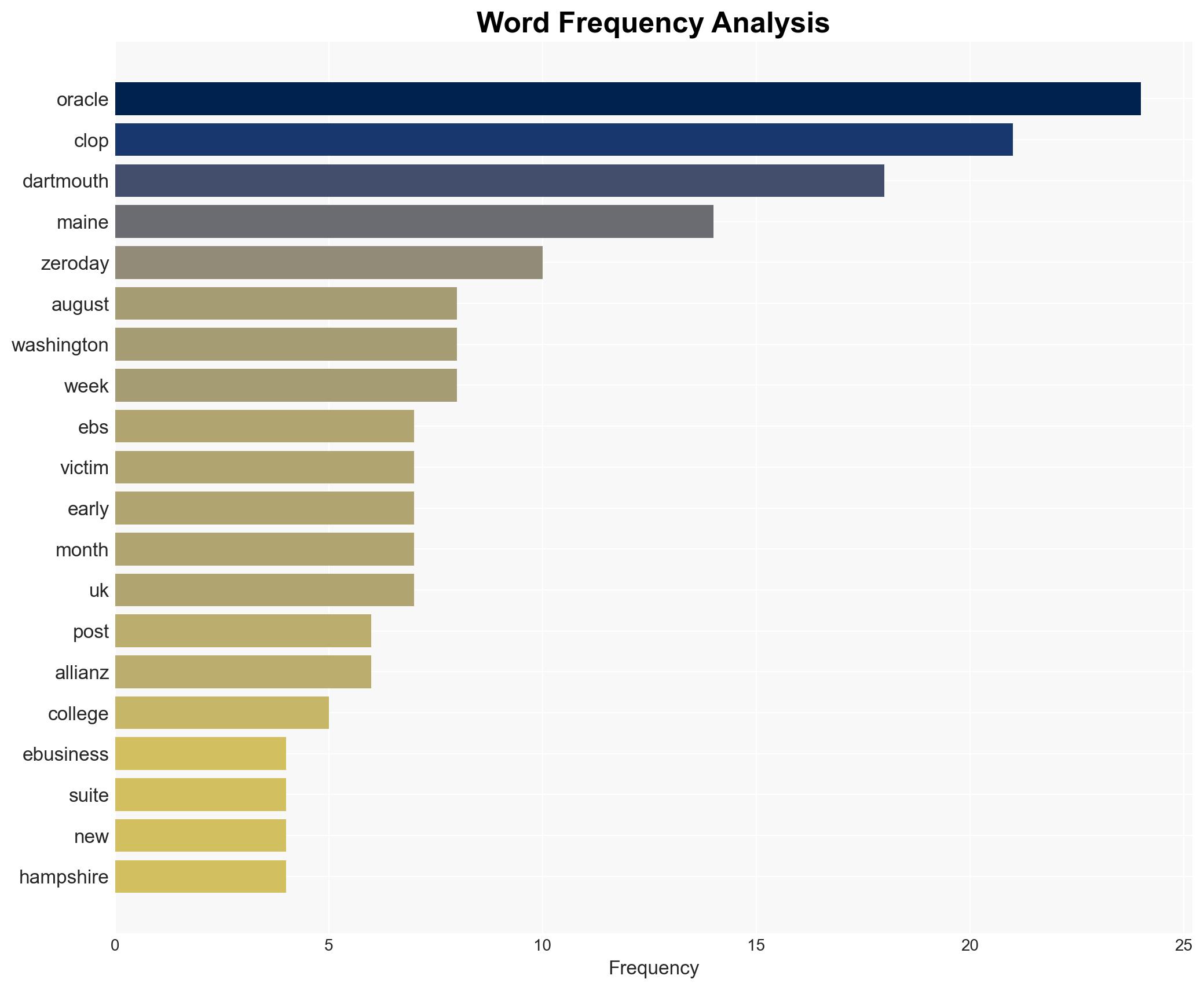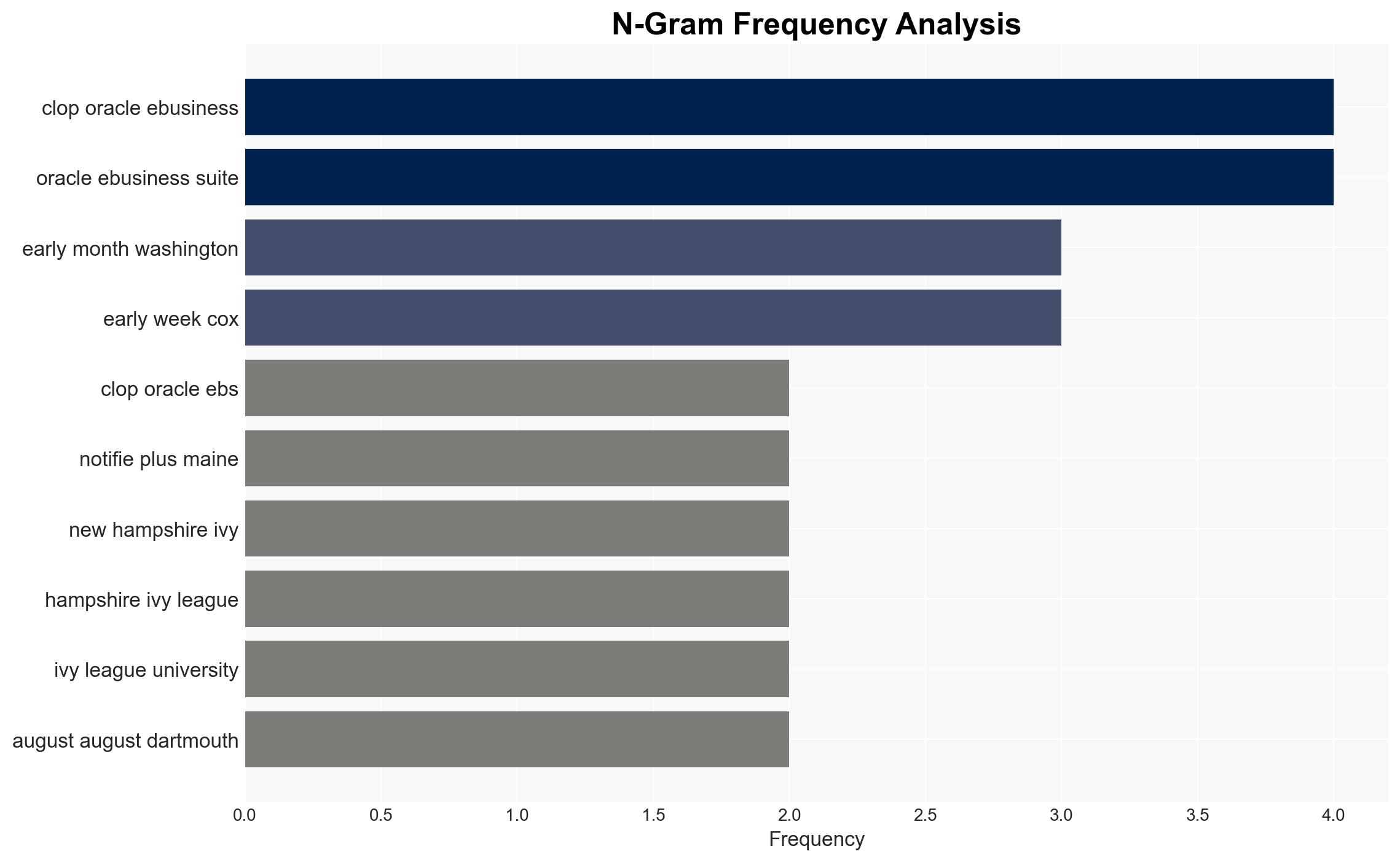Clop’s Oracle EBS rampage reaches Dartmouth College
Published on: 2025-11-25
AI-powered OSINT brief from verified open sources. Automated NLP signal extraction with human verification. See our Methodology and Why WorldWideWatchers.
Intelligence Report: Clop’s Oracle EBS Rampage Reaches Dartmouth College
1. BLUF (Bottom Line Up Front)
The Clop ransomware group’s exploitation of a zero-day vulnerability in Oracle’s E-Business Suite (EBS) has significantly impacted Dartmouth College and other organizations. The most supported hypothesis is that Clop is leveraging these vulnerabilities to conduct widespread data theft campaigns with a high degree of sophistication and coordination. Confidence Level: Moderate. Recommended actions include enhancing cybersecurity measures, particularly around Oracle systems, and increasing collaboration with law enforcement and cybersecurity agencies.
2. Competing Hypotheses
Hypothesis 1: Clop is targeting Oracle EBS users specifically due to the high value of data stored in these systems and the widespread deployment of Oracle solutions, making them lucrative targets for data theft and extortion.
Hypothesis 2: The attacks are opportunistic, exploiting a zero-day vulnerability in Oracle EBS that was publicly disclosed, with Clop aiming to maximize the impact before patches are fully implemented across affected organizations.
The first hypothesis is more likely due to Clop’s known modus operandi of targeting high-value enterprise platforms and the strategic selection of victims, such as Dartmouth College and other prominent organizations.
3. Key Assumptions and Red Flags
Assumptions include the belief that Clop has the technical capability to exploit zero-day vulnerabilities effectively and that they have a strategic interest in targeting educational institutions and large enterprises. Red flags include the rapid succession of attacks and the potential for underreporting due to reputational concerns. Deception indicators could involve misinformation about the scope of the breach or the effectiveness of the patches applied.
4. Implications and Strategic Risks
The continued exploitation of Oracle EBS vulnerabilities poses significant cyber risks, including data breaches, financial losses, and reputational damage to affected organizations. Politically, these attacks could strain international relations if Clop’s ties to Russian cybercrime are substantiated. Economically, the breaches could lead to increased costs for cybersecurity measures and potential regulatory fines. Informationally, the attacks could erode trust in Oracle’s security capabilities.
5. Recommendations and Outlook
- Organizations using Oracle EBS should immediately apply all available patches and conduct thorough security audits.
- Enhance threat intelligence sharing with cybersecurity agencies and peers to improve detection and response capabilities.
- Develop incident response plans specifically for ransomware attacks and conduct regular drills.
- Best-case scenario: Rapid patching and increased security measures prevent further breaches.
- Worst-case scenario: Continued exploitation leads to widespread data theft and significant financial and reputational damage.
- Most-likely scenario: Organizations experience sporadic breaches until comprehensive security measures are implemented.
6. Key Individuals and Entities
Clop ransomware group, Dartmouth College, Oracle Corporation, Maine Attorney General, Cybersecurity and Infrastructure Security Agency (CISA).
7. Thematic Tags
Cybersecurity, Ransomware, Zero-Day Vulnerability, Data Breach, Oracle E-Business Suite
Structured Analytic Techniques Applied
- Adversarial Threat Simulation: Model and simulate actions of cyber adversaries to anticipate vulnerabilities and improve resilience.
- Indicators Development: Detect and monitor behavioral or technical anomalies across systems for early threat detection.
- Bayesian Scenario Modeling: Quantify uncertainty and predict cyberattack pathways using probabilistic inference.
Explore more:
Cybersecurity Briefs ·
Daily Summary ·
Support us





